Despite studying and working in the field of tropical coral reef ecology for nearly 7 years, I had never seen a coral spawning event in my life… Until today!
Coral spawning is one of the planet’s most prolific and mysterious methods of reproduction. A precise recipe of environmental factors is needed to trigger synchronised spawning events, and this recipe is still not entirely known. What we do know is that timing is everything. Coral spawning often corresponds with the lunar cycle, with the full moon seemingly acting as a visual stimulus to the choreographed sex.
Conscious of the rarity of such events, I was completely astonished to witness a large colony of Goniopora coral spawning during a breezy Saturday morning dive with Blue Ventures’ marine conservation volunteers. That’s Timor-Leste for you though! Full of the most magical marine surprises.
I found myself caught up in a primal thrill! And yes, those are my excited shrieks of joy in the video below, taken by volunteer Caspar de Roij.
Tropical coral reefs are the epicentre of marine biodiversity. These ecosystems nurture thousands of marine species, support global fish stocks, and feed millions of people around the world. However, due to the increasing threats of climate change and damaging human impact, coral reefs have never been at greater risk of destruction.
This has inspired the scientific community to try and develop a better understanding of coral reproduction in order to increase spawning success and aid conservation and recovery.
Recent studies deployed tethered robots to analyse and document coral spawning, revealing how remarkably punctual these large-scale phenomena actually are. If corals shed their sex cells just minutes out of sync with neighbouring colonies, the odds of reproductive success are greatly reduced. If successful, the buoyant packets of sperm and eggs can travel for hundreds of kilometers before settling and colonising a new reef.
Coral scientists have also partnered with NASA, creating satellite maps that show the northward shift of coral spawning events in response to rising sea temperatures.
We don’t quite have the tech for studies like that at our base camp on Atauro Island in Timor-Leste, but we’re doing our part to understand and protect the island’s majestic fringing coral reef ecosystems.
During a typical six week expedition, Blue Ventures volunteers spend their mornings in the underwater classroom with the scientific dive team. As they immerse themselves in Timor-Leste’s immense marine biodiversity, they are taught to identify various fish families and coral growth forms. This is then complemented with afternoon presentations that contextualise their underwater experiences with marine ecosystem ecology.
By roughly halfway through their expedition, the volunteers are fully prepared to conduct reef surveys around the island. These surveys include fish biodiversity, coral biodiversity, invertebrate presence, and impacts, including diseases, bleaching, rubbish, or evidence of destructive fishing. We’ve also recently added a programme called Coral Watch to the expedition itinerary, where our volunteers learn to analyse coral bleaching and contribute data to a global database which monitors the effects that rising ocean temperatures are having on corals.
All of the surveys contribute to an increased understanding of Timor-Leste’s coral reef ecology, and the findings are shared with the country’s government and communities, and support community-led marine management and conservation efforts. I simply could not be more excited to share the great news of a healthy coral spawning event with my homestay family and the rest of the communities on Atauro Island.
Join us in Timor-Leste
Read a day-in-the-life of a marine conservation volunteer
Blue Ventures would like to thank our supporters and funders including the Darwin Initiative through UK Government funding.

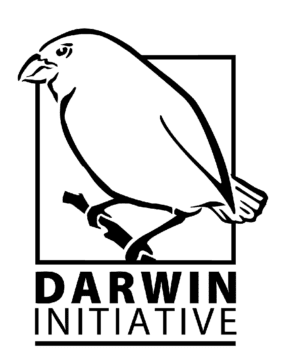


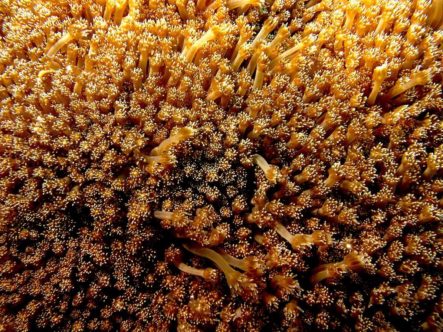
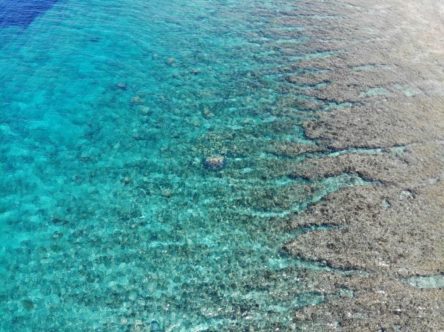
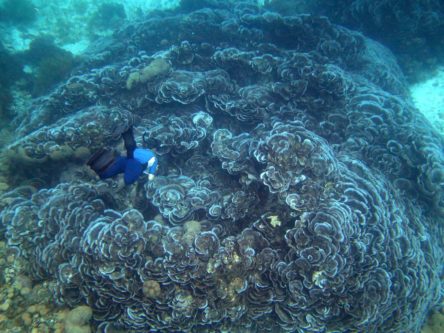
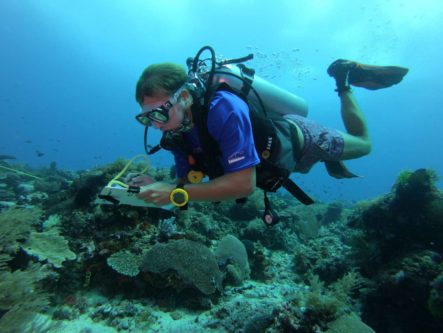
Roxy, what a great post. I learned…and feeling informed is crucial today. Beautiful picture and clip too.
Great post Roxy! A once in a lifetime event probably, shame Expedition 17 missed it.
Xx
Rosa.